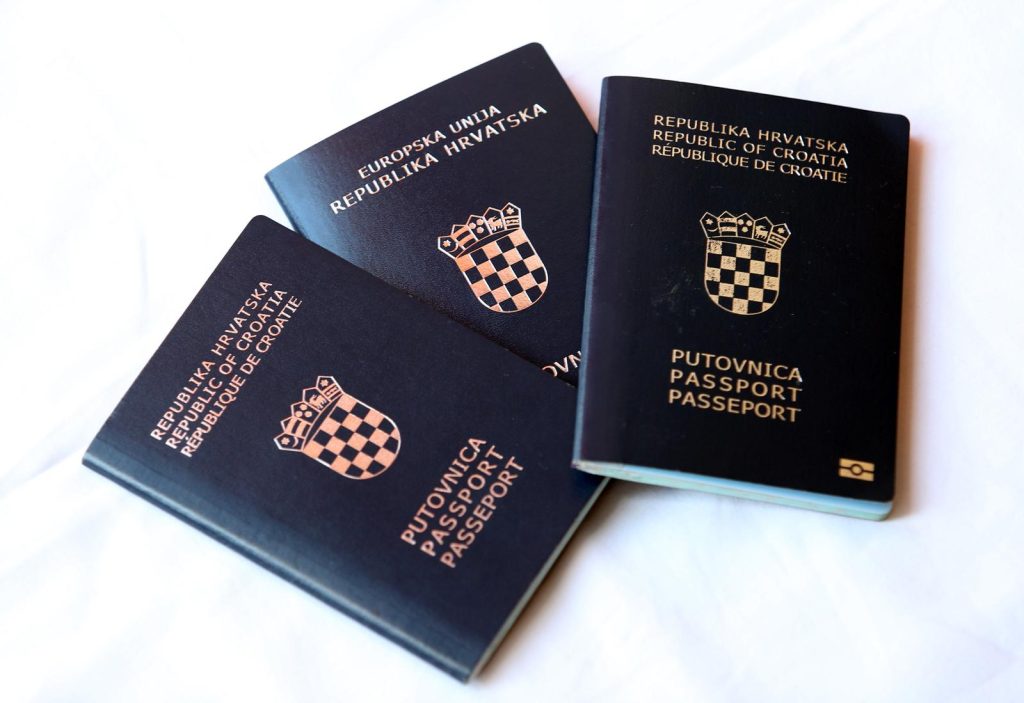Not long ago, I agreed to help a master’s student with her thesis, in which she sought to learn more about South Americans of Croatian ancestry and how the experience of studying the Croatian language in Croatia has helped them forge a kind of Croatian identity. For those not so familiar, the Croatian Government offers a Croatian language study scholarship through the Central State Office for Croats Abroad, in which people who have completed secondary education and who belong to the Croatian community in one way or another, can travel to five Croatian cities (Zagreb, Split, Rijeka, Osijek and now Zadar) to learn more about the country’s language and culture. The experience also allows them to explore their roots further, and even presents them with an excellent opportunity to resolve issues related to their citizenship, passport, and more.
Having studied two semesters in Rijeka and one in Zagreb, and being only a few months away from completing three years living in Croatia, I thought that my experiences and anecdotes could be useful for her research. I can now say that for me it was a very introspective conversation. I don’t remember the last time I asked myself so many questions about my experience in Croatia so far, or even about my own identity. One of the questions was: ”What makes you feel Croatian?” I didn’t mean to downplay that question, but my answer was simple: ”I’m not Croatian. I am Peruvian”. It makes one wonder, what exactly makes a Croatian identity? What does it really consist of? It may be several factors, such as the following:
Croatian ancestry
I have met many people throughout the years who told me about how their Croatian-born parents taught them about the country they come from or told me about the Croatian dishes and delicacies that their grandparents prepared at home. It’s something that, as a sixth-generation Croatian, I couldn’t understand unless I was told about it. Little do we know about my ancestor’s life and his reasons for leaving Croatia. Over time we have learned that he died young when his son was just a child. And that son grew up and had his own family, and he also died when his son was very young. Thus, in future generations, the sense of belonging was lost or simply ignored.
In my case, and surely for many like me, the only thing we knew was that our last name is Croatian… and that is it. If we really wanted to get more familiar with those roots, it depended a lot on our own will or interest in learning more. Sometimes it seems that the less you know, the less you identify with a place.
Croatian citizenship
My father obtained Croatian nationality for himself, my siblings, and me when we were still little. Back then it was easier than it is now. Although we didn’t know much about Croatia, when we got older we realised the difference between knowing the origin of your last name and having the Croatian Government officially recognise your ancestry. You’d think it wouldn’t make much of a difference if you’d never left your own country, but somehow I thought it was a great way to pay tribute to my ancestor by acknowledging his own legacy.
Croatian passport
I didn’t have a Croatian passport until I was 23 years old. Being from Peru, the only two feasible ways to obtain it were in Croatia (with the condition of being there during the length of time the process takes) or with an appointment at the Croatian Embassy in Chile. We didn’t opt for any of those alternatives because we didn’t see the need, during all these years, to have a passport. Suddenly we were presented with an opportunity to obtain a Croatian passport in our own country, and even without fully understanding the advantages beyond the obvious ones, we didn’t even think twice.
There are many ways to answer the question, ”Where are you from?” Some say, ”I’m from Argentina”, and others ”are from Australia’‘. Just as there are those who say that “they were born in Chile.” But something I have also heard is from those who respond “I have a Croatian passport” to explain that they also have that citizenship. The passport, in addition to being a travel document that allows you to cross borders as a citizen of a particular country, has also been a symbol to show belonging to a nation. Although I felt like I had taken a big step towards knowing more about my roots the day I got mine, I also keep wondering if having the travel document of a country is enough to feel like part of it.
Residence in Croatia
In October it will be three years since I left everything to make Croatia my new home. This time has helped me understand that having residence in a country goes beyond having the police’s permission to stay or even beyond owning or renting a square metre or two in a Croatian city. Living in Croatia involves becoming familiar with what surrounds you: public transport, shopping at the store, visiting the family doctor, walking the streets… all this has helped me feel that I’m adapting better and better to a new society. Having a Croatian ID in your wallet makes you feel there’s now somewhere to call home. But is it enough?
Learn the Croatian language
For most, having the above is of little use if you don’t know the language. In any case, having the ancestry, the citizenship, the passport or even living in Croatia, but not knowing the Croatian language, is like keeping that cultural gap wide open. There’s a common misconception about Croatia as a country where you can get by only by speaking English. Although the majority of its local population speaks English, and very well, it could be said that it is merely a resource to facilitate communication with foreigners of all kinds. After studying the Croatian language for three semesters and empirically for another sixteen months, I still believe that my whole life in Croatia falls apart when I can’t keep a conversation in Croatian afloat.
But having said all this, what is it then that makes you feel Croatian? Is it just one factor? Is it a combination of many? The only thing I know is that, at least for today, I’m far from being able to feel I have a Croatian identity.
I was born in Lima. I grew up there. My parents are Peruvian, as are my grandparents, as are my great-grandparents, and so on. The closest friends I’ve had since I was little are also Peruvian. I know the in-depth the history of my country, its many regions, its diverse cultures, and more. Although I’m adapting better and better to this country, I think I am very far from even considering myself Croatian. Furthermore, I believe that despite having citizenship, living here, having a passport, and learning the language, changing my identity is not something I’m looking for. Maybe its something that comes along naturally and is a process of its own.
For more news about the Croatian diaspora, visit our dedicated section.












